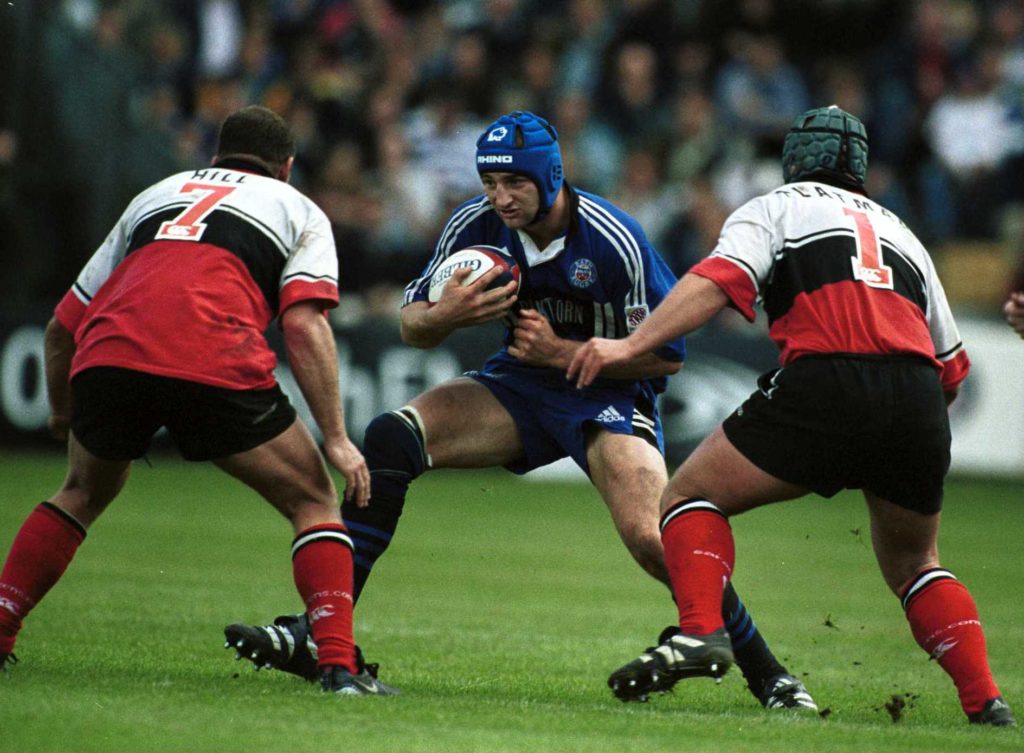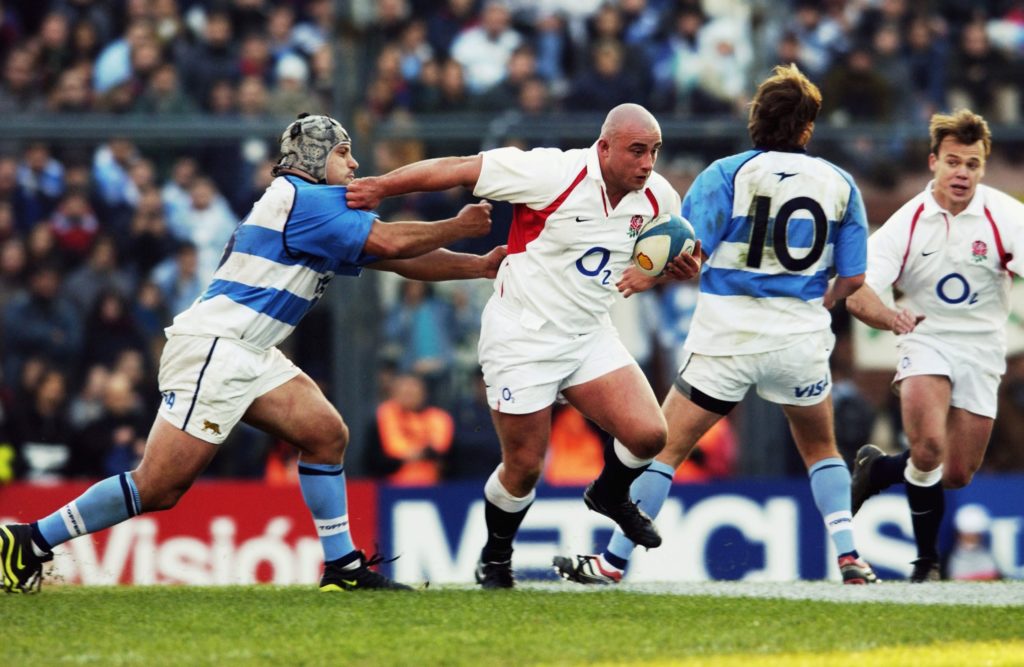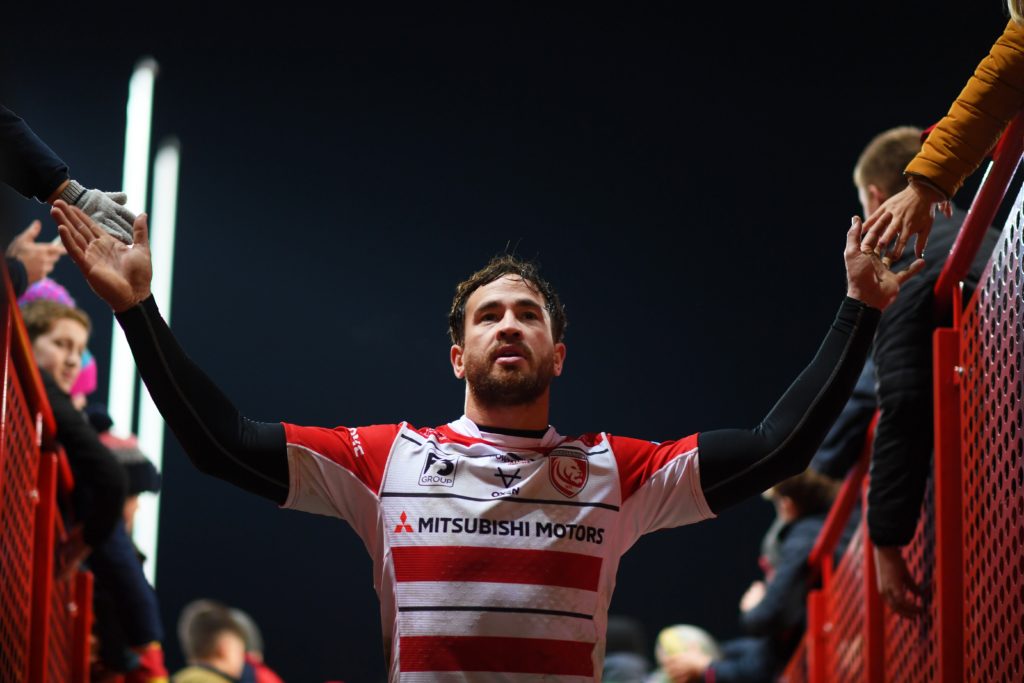It’s always frustrating when someone tries to regurgitate a poignant quote that they heard somewhere along the line but can’t as they don’t quite remember it properly. I do this relatively often when I tell those around me of something Stuart Lancaster told me once. I always begin my doomed recital with, ‘It’s all to do with the Time:Value ratio, Flats’, and then I pause, ‘No. Star:Value ratio. No, wait. Value added:Management’.
Anyway, whatever he said – and Lancaster indeed said a great many things that were worth taking on board – the point was that even a star player mustn’t absorb more than their equal share of the group’s time, otherwise their star begins inevitably to shine less brightly.
Jonny Wilkinson was, perhaps unsurprisingly, offered up as a positive example of the star breed. We all know what he brought as a player and professional, and took approximately no time at all to manage. You just knew that Jonny would do his extras, you knew he’d eat right, you knew he’d be in the right place at the right time, every time, in the right kit, and you just knew he wouldn’t get pissed midweek and chin a nightclub bouncer who’d laughed at his Balenciaga trainers.
I cannot think of another player, with or against whom I played over the years, that I’d rather see nearby when it was going off, this physical reliability carrying perhaps the ultimate magnetism.
Richard Hill set the standard as a player and a person
These stars are often the most valued team-mates of all. They’re not always the funniest, and they don’t always have the best stories come Monday morning’s pool recovery session but, when it’s going off at Twickenham or Welford Road on a wet Saturday afternoon and the blows are seemingly landing from all angles, they are the human beings you want by your side above all others. I never saw Richard Hill puke his guts up in a pub toilet (he came close once or twice, mind you), I never saw him breakdance on the streets of north London, and he always had the same partner (another legendary and adored presence, predictably) so he was never snogging or fondling or flirting. Yet I cannot think of another player, with or against whom I played over the years, that I’d rather see nearby when it was going off, this physical reliability carrying perhaps the ultimate magnetism. He didn’t rub it in that we weren’t as good as him at anything except drinking; he just got on and led by example, dragging us all up to varying degrees.

As I reflect, it probably saddens me a little that I seemed to fulfil quite the opposite role. Sure, I trained my arse off, I piled in during games, I did my bit. But I also partied too much in the early days, not quite realising the position I was in and not quite realising how to do it justice. I was naturally an extremely strong young man – I’m not saying there weren’t stronger around, but strong I was – so I left school and was picked almost immediately for the first team at Saracens, with bonafide legends all around me. Quickly, I began to enjoy the laughs I got in the team room, the gasps I got in the gym, and the back slaps I got after outscrummaging international props twice my age.
About four years into my five years at Sarries, Hilly lunged over to me in one of these pool sessions, as the tales from the night before were flying around the room to roars of laughter and disbelief, and asked me, ‘When are you going to stop pissing away your potential?’
It hurt me. It also changed me. It changed everything. I slowed down socially, I slowed down calorifically and I sped up professionally. By the time I arrived in Argentina with England that summer, I was a completely different player. I was picked to start the Test and I played my best-ever match. When we got home, I was given man of the match in our first league game, and was flying in the second when my shoulder cartilage was torn away in a scrum – and that was that. Despite playing for another decade, the injuries never really stopped coming, so I never truly recovered. But I never forgot what Hilly said, and how much those hard words from a good friend and great team-mate meant.

You see, great rugby players are not just great rugby players. Actually, there are plenty of brilliant players around, but not all of them achieve greatness. Often this is to do with talent, or bad luck with injuries, but more often it is to do with character. Professional team sports obviously require a high standard of play, but they also require a high standard of behaviour, social etiquette and selflessness.
Because he whacked the ball around and scored a ton of runs, many sports fans argued that Kevin Pietersen ought not to have been dropped from the England cricket team. I couldn’t disagree more strongly.
The notion that all that matters is how a player performs at the weekend is, in my view, entirely erroneous. Because he whacked the ball around and scored a ton of runs, many sports fans argued that Kevin Pietersen ought not to have been dropped from the England cricket team. I couldn’t disagree more strongly.
If a player saps positivity, energy, motivation from the group on a daily basis, then they will inevitably – even if gradually – impact the performance of those around them, and therefore the team. It would also suggest that one person is indeed more important than the harmony of the team, thereby forfeiting the invisible but powerful advantage that is solidarity. ‘This is how I do it so deal with it’ is the approach of someone who hasn’t the time to think of what may help those around them. Playing well simply isn’t sufficient in justifying being a poor contributor in a team setting. Selfishness is poison in environments where athletes spend more time with each other that they do with their own families, and often under more pressure than can be imagined. It kills a team stone dead.

We may never know what happened with Danny Cipriani at Gloucester, but we know one thing: it was not his rugby ability that led to the premature termination of his contract. Cipriani did some outrageously wonderful things in that famous hooped jersey, but he also had some off days. There were days when he appeared unplayable, his skills unrivalled, and there were days when he didn’t look interested. Team-mates see this – of course they do – and they hate it. Billy Twelvetrees, for example, simply cannot do some of the things Cipriani does with a rugby ball. I’d wager, though, that very few at Kingsholm would swap the one they’ve kept for the one they’ve let go.
It’s about respect. Call it teamship or mateship if you like, but it’s about respect. Respect your mates enough to do whatever it takes to help them win and the environment – the club – will look after you. Disrespect the collective by placing yourself above it, and it won’t last. It doesn’t matter how many runs you score. You’ll light it up for a while, then your team-mates will realise that they are better off not having to consider how you might react or behave, they will realise that they do not enjoy relying on you, and they will realise that they are happier without you.
More columns from David Flatman
If you’ve enjoyed this article, please share it with friends or on social media. We rely solely on new subscribers to fund high-quality journalism and appreciate you sharing this so we can continue to grow, produce more quality content and support our writers.



Comments
Join free and tell us what you really think!
Sign up for free